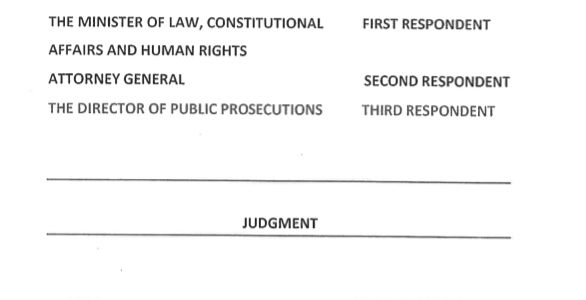Followers of The ACtHPR Monitor’s twitter feed (and if you are not, you can follow us here) may have caught the latest news that Lesotho’s Constitutional Court has just handed down judgement finding that the offence of criminal defamation violates the Lesotho Constitution’s protection of freedom of expression. The judgement is available here and is well worth a read.
This is cause for celebration, especially for those who have long championed for the eradication of defamation as a criminal offence across Africa. What is also great to see is that the Lesotho Constitutional Court relied in part on the African Court’s Konaté judgement (which found Burkina Faso’s criminal defamation laws in violation of the African Charter, as well as other international instruments) as well as the views of the UN Special Rapporteur on Freedom of Expression. On a personal level, given that I am heavily involved in litigating, advising and writing on the African Court and UN Special Rapporteur systems this is really exciting. I am forever the optimist, and a great believer in the systems available to pursue these cases, but I hope this latest result can give everyone, no matter their stance, a little optimism moving forward.
In my experience, when advising on bringing cases before the various human rights mechanisms, one of the most frequently asked questions by prospective applicants (as well as students, other lawyers, activists, journalists etc etc) is will it make a difference? This is entirely understandable. Its easy as the lawyer to set out options and give advice, it is very different for the prospective applicant. They have to live through the often difficult process of explaining what happened, then listening to lawyers, activists and organisations, before making important decisions which is then inevitably followed by a lengthy wait as their case moves through the system.
I hope this latest judgement can therefore serve as encouragement for anyone considering bringing a case, in the midst of a pending case, studying the human rights systems or advocating for change. The Lesotho Constitutional Court has clearly paid careful attention to the continental human rights system and the UN human rights system in reaching its conclusion.
As I say, I am personally optimistic about the human rights systems we have (not that they don’t need improving) but I hope this latest result can give everyone a little bit of optimism moving forward. Bringing these cases can effect real change not only country subject to an application but also far beyond. Congratulations to everyone involved! You can read more on the case on the Southern Africa Litigation Centre’s website here, and once again the judgement can be found here.

